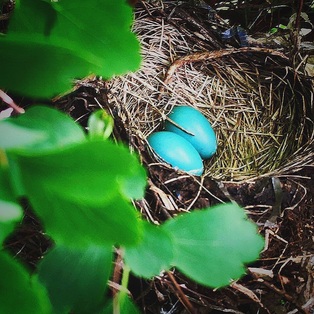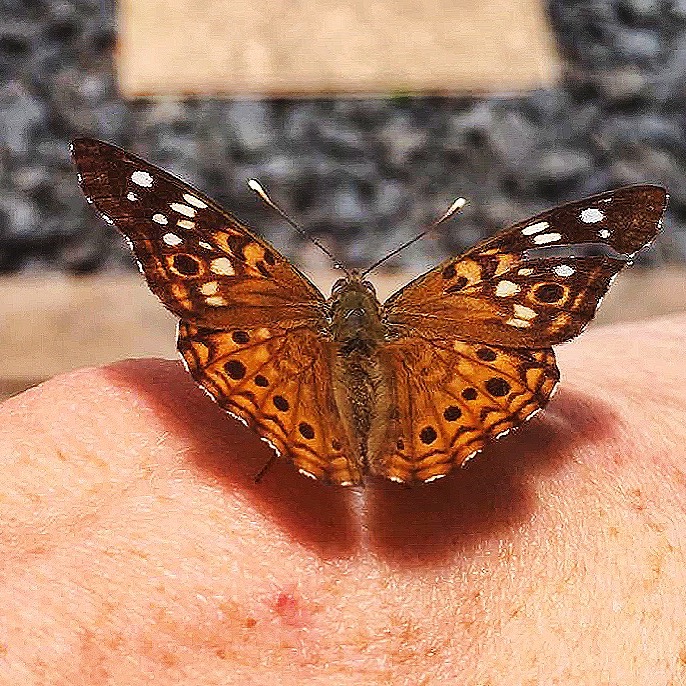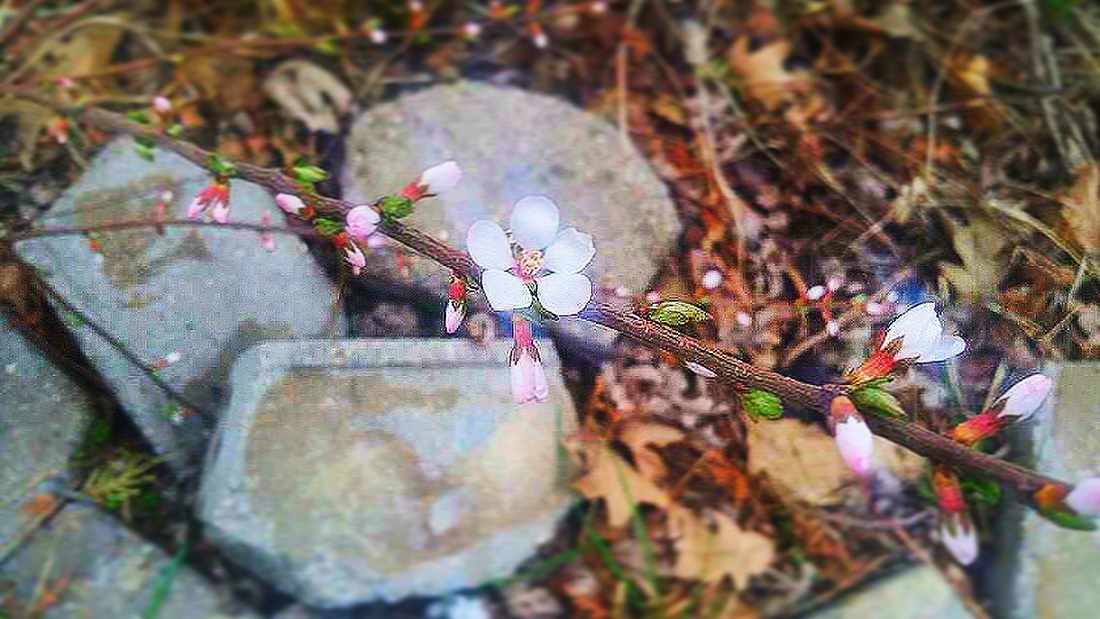These words were written by Amber LaBancz - midwife, massage therapist, beautiful mama and a million things, more.
Motherhood- it is/can be all of the things that we are told that it is. Beautiful and magical and serene.
It can also be really damn hard. We’ve been told that motherhood is romantic and beautiful, and that we just fall in love with our new baby every minute of every day. We may feel those things, but we may also feel exhausted, inept, overwhelmed, and sometimes even a little bit resentful. We don’t always expect the leaking and crying and emotional roller coasters of those early days. I mean, people mention that these things can happen, in a glossed-over kind of way, but then you hear them praise the women that are shopping and doing laundry just two days after giving birth. We want to be superwoman too. We want people to know that we’re that tough too. We want people to know how much we love our baby and our new life by showing them how quickly we can “get back to it:” And we have something to prove to ourselves too.
Most women have a vague sense that they will need to have some down time after baby comes, to recover physically. It is hard enough for women to even accept any help for this physical recovery, so when we start a conversation with them about their emotional or spiritual selves needing care and tending and ask them what their postpartum plan is, we often get a blank look. “What do you mean?” is the most common question that we hear. Because here in the US we don’t have a framework for caring for new mothers and new families. Women are made to feel that they must be Superwoman or otherwise they are somehow failing or are being overly needy. Put on the happy, well-groomed mask and show the world that you can indeed do it all! And here’s the thing, you probably can. But at what cost?
It can also be really damn hard. We’ve been told that motherhood is romantic and beautiful, and that we just fall in love with our new baby every minute of every day. We may feel those things, but we may also feel exhausted, inept, overwhelmed, and sometimes even a little bit resentful. We don’t always expect the leaking and crying and emotional roller coasters of those early days. I mean, people mention that these things can happen, in a glossed-over kind of way, but then you hear them praise the women that are shopping and doing laundry just two days after giving birth. We want to be superwoman too. We want people to know that we’re that tough too. We want people to know how much we love our baby and our new life by showing them how quickly we can “get back to it:” And we have something to prove to ourselves too.
Most women have a vague sense that they will need to have some down time after baby comes, to recover physically. It is hard enough for women to even accept any help for this physical recovery, so when we start a conversation with them about their emotional or spiritual selves needing care and tending and ask them what their postpartum plan is, we often get a blank look. “What do you mean?” is the most common question that we hear. Because here in the US we don’t have a framework for caring for new mothers and new families. Women are made to feel that they must be Superwoman or otherwise they are somehow failing or are being overly needy. Put on the happy, well-groomed mask and show the world that you can indeed do it all! And here’s the thing, you probably can. But at what cost?
Feeling exhausted, sad, missing our “before baby” lives and loving our baby harder than we thought it possible to love, are feelings that can exist side by side in our minds. We can feel the overwhelm and still love our baby like crazy. Life and emotions are not black and white things. We can love deeply, but also be deeply exhausted. We can feel so much love that we feel like our hearts are either going to run over or explode and at the same time feel deeply empty and overwhelmed. All of these jumbled feelings can stand side by side. They can all exist at once. And we can feel one way one minute and the complete opposite the next. We HAVE to create a safe space and community for ourselves. Ask yourself, who are your people? Who are your “I’m a hot-mess, I don’t even love this day”, people? Who are the people who can understand that you can love your children endlessly, but still not love everything about motherhood and parenting, people? Who do you trust to come into your home, take a look around, and roll up their sleeves because they know what needs to be done? Who will give you a hug, or brush your hair, or tuck you back into bed?
What if we told you that it is your responsibility to your baby to take care of yourself? It’s not a selfish thing to do. What if we said that building a tribe, a village, is actually part of your job. That it’s ok to ask for or need help. That it’s necessary to have a supportive community. That we as humans are built for connection, for interdependency. That because we are always giving, we must also receive. That if we don’t receive, our children, our families, our friends, all of our other work, will suffer. I mean, truly suffer. So, what if we said this is not a selfish desire, but a part of our job title as a parent. It is our job to create a framework, a network of people we feel we can receive from in a way that goes far beyond our physical needs of a clean house and meals. As new mamas we kind of need the same things our babies do. We need to lay our head on someone’s shoulder, have our backs rubbed, sleep deeply, and have someone bring us nourishing food and drinks. We need to be held. We need to not have all the responsibility of running a household. It’s really just the smallest window of time. We need to be able to depend on others during this time.
What if we told you that it is your responsibility to your baby to take care of yourself? It’s not a selfish thing to do. What if we said that building a tribe, a village, is actually part of your job. That it’s ok to ask for or need help. That it’s necessary to have a supportive community. That we as humans are built for connection, for interdependency. That because we are always giving, we must also receive. That if we don’t receive, our children, our families, our friends, all of our other work, will suffer. I mean, truly suffer. So, what if we said this is not a selfish desire, but a part of our job title as a parent. It is our job to create a framework, a network of people we feel we can receive from in a way that goes far beyond our physical needs of a clean house and meals. As new mamas we kind of need the same things our babies do. We need to lay our head on someone’s shoulder, have our backs rubbed, sleep deeply, and have someone bring us nourishing food and drinks. We need to be held. We need to not have all the responsibility of running a household. It’s really just the smallest window of time. We need to be able to depend on others during this time.
| “While you are nurturing your newborn, you need someone to nurture you, whether it is with healthful drinks while you’re nursing, or with words of encouragement as you talk about your feelings. In this state of continual giving to your infant-whether it is nourishment or care or love-you are easily drained, and you need to be replenished from sources outside yourself so that you will have reserves to draw from. Once you are aware of this, paying attention to and respecting these needs of the early postpartum weeks at home do not make you a weak or self-indulgent mother. They don’t make you a wimp. Rather, applaud your wisdom in respecting your own intimate needs and the needs of your family.” -Sally Placksin, “Mothering the New Mother” |
Becoming a mother (or a mother once again) expands us as human beings. It stretches and grows us. It is a transformative, right of passage experience. We are also expanded and made more whole when we allow people in. To be a part of our experience, to help us, to offer unconditional support to us, to put gentle hands on us and take care of us, to bring us healing foods and drinks. When we love ourselves enough to allow people in, when we create a village for ourselves and our children, we allow ourselves to grow, to have bigger love, we are able to offer even more of ourselves in return. Creating a foundation of support is a gift to ourselves, and in turn, a gift to our families. We are not machines, we are spirit. Invest in yourself. Nourish yourself, mama. Love and care for your body, your mind, and your spirit. We need to take back this ancient way of viewing the postpartum period and caring for women and make it new again. We need to honor it and ASSUME that women will take this time to heal and restore. In this way we can begin to create a cultural shift, so that ALL mothers can take the time they need to renew physically, mentally, emotionally, and spiritually.






 RSS Feed
RSS Feed
